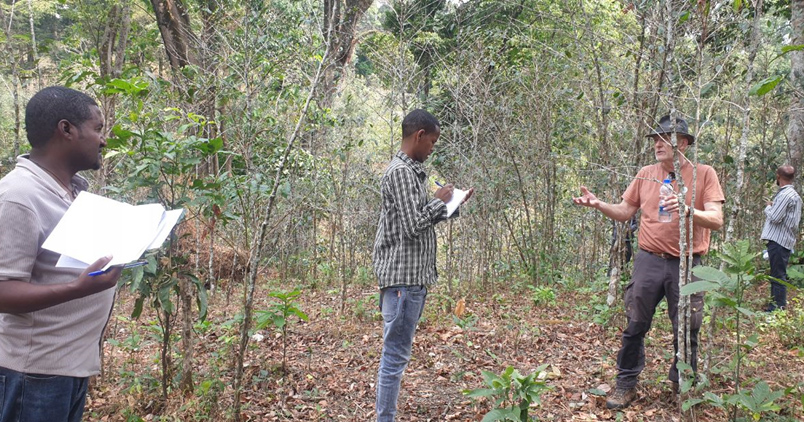
The PATSPO II project – in collaboration with the Forestry, Environment, and Climate Change Bureau (FECCB) of the Southwest Region – provided practical training on seed source identification and description in Southwest Ethiopia on 24–26 March 2025. The 12 participants, who came from different districts of the region, had previously taken a theoretical course on seed source identification and description.
This practical training focused on seed source site identification and selection in different forested areas, as well as descriptions of seed source types. The participants described the identified seed sources – based on a PATSPO II template format – and carried out sample plot demarcation and main tree selection within the plot. They also practiced Global Positioning System (GPS) readings, clinometer readings (height measurement), and diameter at breast height (DBH) measurements. The training included documentation, and use of the PATSPO II seed source description (SSD) template.

Participants received theoretical training in a meeting hall in Mizan town. The practical training was conducted in different forested areas, including in Bebeka Coffee State Forest and Sheka Forest. The training was provided by Carsten Tom Norgaard, a forest and nature technician from the University of Copenhagen, and Yared Kebede, a technical staff member of PATSPO II.




The PATSPO II project launched its activities in the Southwest Region in May 2024 and provided similar training to Southwest Region forestry professionals in August 2024 at Suba Forest in Oromia.













